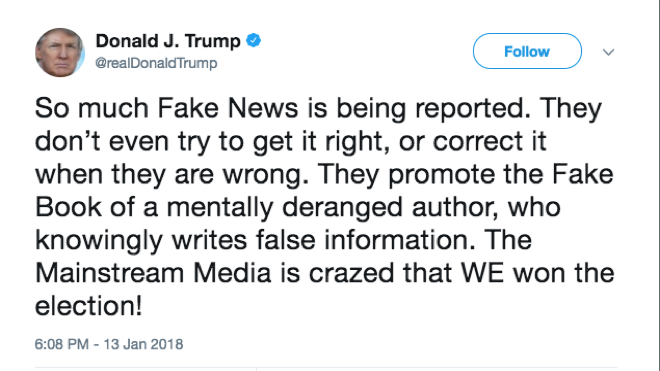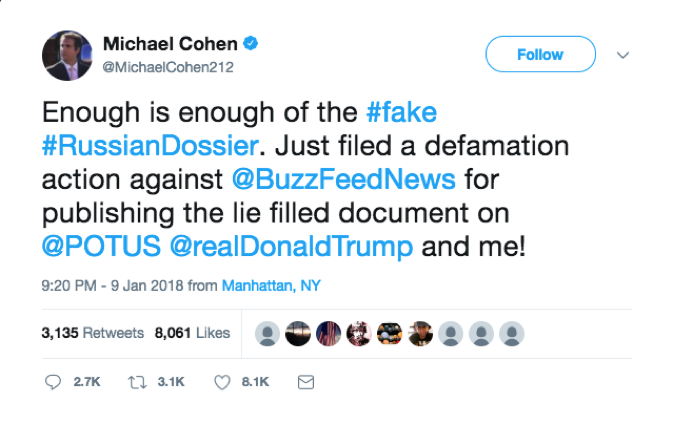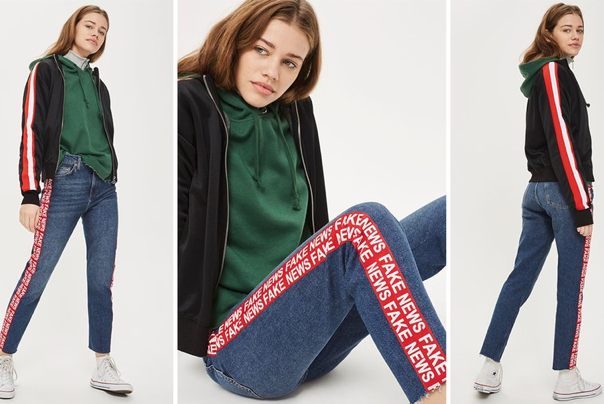US — #WeeklyAddress: January 8 — 14: Trump again suggests changing libel laws
Below are the most notable incidents regarding threats to press freedom in the US during the week of January 8 – 14:
Trump calls current libel laws “a sham and a disgrace”
On Tuesday, January 10, President Trump once again attacked the current libel laws during a meeting with Cabinet members. He called the laws “a sham and a disgrace,” and questioned how they aligned with American values. Trump claimed “we want fairness. You can’t say things that are false -- knowingly false -- and be able to smile as money pours into your bank account.” Many journalists and advocacy organizations, including the American Civil Liberties Union (ACLU)’s Washington Legislative Office, have criticized the President’s remarks, especially given that such changes would be outside his authority. In a statement, the ACLU said Trump’s threat to have the power to change libel law is “not credible” since there is “no federal libel law.”
Trump previously brought up libel laws during his campaign rally in Fort Worth, Texas on February 2016: “I’m going to open up our libel laws so when they write purposely negative and horrible and false articles, we can sue them and win lots of money.” Since that remark, he has not tried to implement his rhetoric.
Trump’s comments come after the release of journalist Michael Wolff’s book, “Fire and Fury,” the publication of which the President had attempted to prevent last week. The president has repeatedly attacked the book and its author on Twitter following its release.

Trump’s lawyer sues Buzzfeed and Fusion GPS for defamation
President Trump’s personal lawyer Michael Cohen filed a defamation action against BuzzFeed on Tuesday, January 9. Cohen claims that the 35-page dossier BuzzFeed published in January 2017, also known as the Trump-Russia dossier, explaining Trump’s alleged involvement with Russia during the election, damaged his reputation resulting in “entirely and totally false” accusations. The defamation suit also targets Fusion GPS, a research firm hired by the Hillary Clinton campaign and the Democratic National Committee to look into Trump during his campaign. Cohen shared his thoughts on the lawsuit through his Twitter account saying, “enough is enough.”

BuzzFeed editor Ben Smith, named a respondent in the lawsuit, wrote an op-ed for the New York Times Tuesday night, stating: “we strongly believe that publishing the disrupted document whose existence we and others were reporting was in the public interest.”
Topshop promotes “fake news” on pants
Topshop, a UK-based clothing company which has multiple stores in the US, profited from Trump’s anti-media rhetoric with the release of their new pants. The pants have the words “fake news” running up each side of the leg. The clothing became a trending item on the site by Tuesday, January 9. The item is no longer available for sale on the website, however 30 percent of their sales came from the US before they were sold out.

These incidents represent a greater trend in the fashion industry. Trump’s war against the press has increased popularity of the phrase “fake news.” Some businesses have attempted to tap into the anti-media sentiment for profit. In November 2017, Walmart pulled a t-shirt design from their stores because it targeted violence against journalists. The design in question was sold by Teespring, a third-party seller, and said “Rope. Tree. Journalist. SOME ASSEMBLY REQUIRED.”
The United States ranks 43rd out of 180 countries in RSF's 2017 World Press Freedom Index after falling 2 places in the last year.
For the latest updates, follow RSF on twitter @RSF_en.



